Graham Reid | | 10 min read
Leonard Cohen: In My Secret Life (from Ten New Songs)
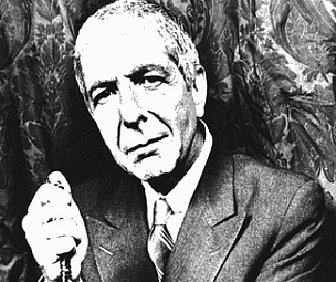
Even the writer Pico Iyer, who knows him better than most, concedes Leonard Cohen – so melancholy he used to be referred to as “a one man Joy Division” – presents a problem.
"He is for most of us,” Iyer wrote in Sun After Dark, “a figure of the dark, sitting alone sometime after midnight and exploring the harsh truths of suffering and loneliness . . . His songs and poetry have always been about letting go and giving things up, the voluntary poverty of a refugee from comfort”.
So who is this man whose songs have
been covered by artists as diverse as Willie Nelson, Straitjacket
Fits, Aaron Neville, the Pixies, John Cale, REM and Billy Joel? This
Jewish-Buddhist and former ladies' man whose Hallelujah the
late Jeff Buckley and others fashioned as a secular prayer?
Cohen – now 76, packs stadiums with
thoughtful songs about hearts and souls – but he also wrote Don't
Go Home With Your Hard-On (with poet Allen Ginsberg and Bob Dylan
on bawdy backing vocals) and of getting a blow-job in the Chelsea
Hotel.
He recorded Death of a Ladies' Man
in '77 with Phil Spector, inspired a song cycle by the classical
composer Philip Glass and is the subject of many biographies. He's a
public performer with a very private life.
Cohen has long been considered
enigmatic, a perception enhanced when he went into the Mt Baldy
Buddhist retreat in California for five years until '99.
But he was always different, and out of step with history when he released his debut album in '67. This was the psychedelic world of Hendrix, Cream's Disraeli Gears and Sgt Peppers, the air heady with marijuana and anti-war activity.
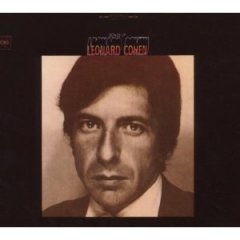 Songs of Leonard
Cohen delivered intense,
monochromatic ballads sung over acoustic guitar.
Songs of Leonard
Cohen delivered intense,
monochromatic ballads sung over acoustic guitar.
But he wasn't a folk singer. As Cohen
biographer Stephen Scobie observes, Cohen was never interested in the
main threads of 60s folk; unearthing old ballads or political
protest: “Take these two things away and basically all that's left
is the notion of the guy with the acoustic guitar . . . the idea of
the singer-songwriter working in a fairly simple musical medium was
the aspect of folk Cohen was able to exploit.”
British rock writer Nigel Williamson
also notes “his influences were unusual, if not unique, in
rock'n'roll at that time.”
They weren't – for the most part –
from music at all. And aren't today.
Cohen – 33 when Songs was
released – was an established writer in Canada with four poetry
collections and two novels behind him. Jim Morrison may have styled
himself a poet – but here was the real thing.
Born in Montreal, Cohen – of an
English-speaking Jewish family in a predominantly Catholic,
French-speaking city – came to poetry in his teens and as another
biographer Ira Nadel says, “that was a voice that spoke to him.”
He hung out with local poets (notably the self-promoting Irving Layton) and was profoundly affected by the Spanish poet Federico Garcia Lorca. Cohen would later set one of Lorca's poems to music (as Take This Waltz, '88) and name his daughter Lorca.
And just as Lorca explored themes of identity, sexuality and death, so too would Cohen. Repeatedly.
Lorca was also fascinated by music –
notably gypsy song, another later influence on Cohen – and at
Jewish summer camp around this same time Cohen picked up guitar.
It wasn't either/or between music and
poetry, says Nadel. “He's beginning to write poetry as he's
beginning to make some gestures towards being a singer”.![]()
And when he discovered the Beat
movement – Jack Kerouac, William Burroughs, Allen Ginsberg and
others – it was Jewish-Buddhist Ginsberg, the most musical of them
all, Cohen gravitated to.
Ginsberg wasn't a poetic influence but
showed being a writer was possible, and a poet needn't be bound by
conventional behaviour. Openly gay, bohemian and funny, Ginsberg
wasn't like the buttoned-down types Cohen encountered in academic
Montreal.
Scobie: “Ginsberg demonstrated to
Cohen some of the ways in which one could make a very public career
of being a poet.” As had Layton.
Ginsberg also became a friend and
confidant to another great influence on Cohen, Bob Dylan, who – in
increasingly literary lyrics – showed poetry could be taken to a
wider audience through song.
Williamson:
“By '65 you've got Dylan singing about [poets] Ezra Pound and TS
Eliot in Desolation Row.
That
must have been hugely encouraging to Cohen who had this intellectual
depth and literary sensibility which he might have imagined couldn't
be satisfied in popular music. Suddenly Dylan proved it could.”
And Cohen was ambitious, as Rolling
Stones' Anthony DeCurtis observes: “Having done the work, I
think he wanted to find the ways of getting [it] to a larger number
of people. As happy as he was with the literary success he enjoyed in
Canada, I don't think that was enough for him.”
So amidst the psychedelic guitar noise
of '67, Cohen's was the quiet voice people paused for . . . and
they've never stopped listening.
Cohen has released more than a dozen
albums and his return to performance in '08 after a 15-year absence
was greeted with an outpouring of devotion – and necessary income.
Cohen had lost most of his money in '05 (around US$5 million) to a
former manager.
But Cohen' music today is very
different from that spare folk of his earlier years.
Professor
Paul Morris, head of Victoria University's school of religious
studies, recalls seeing Cohen at the Royal Albert Hall, London
in '70, one man and a guitar – and the song Avalanche, a
Nick Cave favourite, stood out: “I'd never come
across a song so desperate and
unhappy, it tore into me, an incredible ragged and raw sound. Then I
saw him last year with his nine piece band and it is amazingly
smooth.”
Cohen's reframing of his songs is largely down to his band, among them backing singers and multi-instrumentalists the Webb Sisters (Charley and Hattie) who -- although English and from what Charley calls “a choral-folk background” – also have a trans-Atlantic sensibility after working in Nashville.
The
Webbs and singer Sharon Robinson -- co-credited on Cohen's Ten
New Songs album of '01
which marked his return after Mt Baldy – say Cohen generously
listened to the band's suggestions for new arrangements.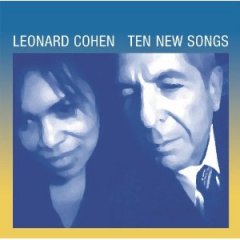
Hattie Webb:
“Leonard was open to everyone bringing their own musicality, but we
were aware of honouring the songs. Rehearsals were a process of
working together and everyone finding the song within themselves.”
Add in Robinson's
diverse background – r'n'b soul to Vegas gigs with Ann-Margaret –
as well as Spanish guitarist Javier Mas, keyboard player Neil Larsen
and saxophonist Dino Soldo (from jazz backgrounds), Cohen's longtime
bassist/musical director Roscoe Beck, session guitarist Bob Metzger
and percussionist Rafael Gayol and you have an ensemble of rare
depth.
In Cohen's music
today there are suggestions of Jewish and gypsy music, Americana,
holy folk and more.
Charley Webb: “You
can also hear some of the Greek influences from when he lived on
Hydra [in the 60s] and how chord changes and melodies were influenced
by that time. You can hear his artistic travels in the songs.”
Morris: “The
[old] songs are instantly recognisable but have a whole new melodic
framework. Although he decries the Spector album, what he's done is a
very sophisticated version of that surround-sound . . . although it
has gone down a couple of octaves and been rounded off.
“He's
like a 20-year old bottle of cabernet sauvignon.”
Robinson – who first wrote with Cohen
in '80 and acknowledges Ten New Songs “was
more a poet's record, because he hadn't been singing a lot before it”
– says Cohen's oblique lyrics allow her to explore musical ideas,
such as the use of Spanish guitars at the start of Waiting
for a Miracle, that the
work of other more literal writers don't.
And Cohen has
always been sympathetic to women and the feminine.
“Like
Leonard, I've tried to figure out the terms and basis of our
existence and the masculine/feminine is an inherent part of that.
That's something we both understand and work to incorporate.”
Cohen's music can also be an evolving revelation for the musicians says Charley Webb: “On certain nights some of us can be highly moved by a particular song which before has resonated in a different way. It'll be more profound.”
Perhaps because his lyrics reference Christianity and Buddhism, and that consistent thread of Jewishness.
Morris: “He is
Jewish not only by name – 'Cohen' easily identifies you -- but when
he became a Buddhist he said he didn't have a new religion because he
never gave up the old one.”
Morris
notes a large number of Jews of Cohen's generation were drawn to
Buddhism – particularly austere Zen -- as an antidote to the worst
aspects of modernity. But texts and practices of Judaism – from
'69's Story of Isaac
(a Vietnam-era metaphor of one generation sacrificing the next) to
Who By Fire
and If It Be Your Will
later which refer to scripture – always informed Cohen's lyrics,
even after his embrace of Buddhism.
“Jews
come from a highly intellectual, textual tradition and are drawn to
the most austere forms of Buddhism, in Cohen's case Rinzai Zen,
sitting practice, and it's an amazing strain – but he claims it has
kept him sane.”
In an insane world
where your fortune disappears overnight, maybe sitting in silence is
a valid response?
Morris
notes Cohen – of priestly lineage – last year offered the
blessing from the Book of
Numbers to
an audience in Israel:
“May God lift his face
to you and grant you peace, may God bless you and guard you, may God
cause his face to shine on you and be gracious to you.”
“He
also made the priestly sign – which was rather perverted by Leonard
Nimoy in Star Trek,”
laughs Morris. “It is almost identical, that V sign, and Cohen made
that.”
Such personal
gestures, as much as the diverse and often deeply mystical content of
his songs, add resonance to Cohen's life and work. He reaches people
in different, subtle ways.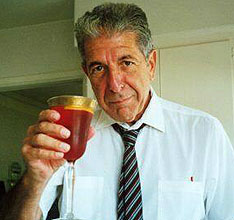
“But
you kind of think he always just told the truth.” says Morris. “And
given the history of his songs he honed that truth into art. Part of
his power is his sheer conviction in saying, 'This is my truth, take
it or leave it.'”
Charley Webb says
certain songs have different effects on audiences, nowhere more so
than during that concert in Israel where Cohen guided the political
conversation before and during the performance (to 50,000 in a
football stadium) to the cause of the concert, the apolitical
Bereaved Families for Peace organisation.
“The
backgrounds of the countries we visit have an effect on which songs
touch people. In Poland or France The
Partisan has a rumbling
which becomes a roar of feeling from the crowd, not just vocally but
emotionally.
“In
Helsinki the crowd was reserved and pensive, slowly taking the
concert in. By the end you could hear a pin drop when something was
being said by Leonard. Compare that with Sligo in Ireland where the
presence for them is his music. People were singing along and dancing
in the aisles.”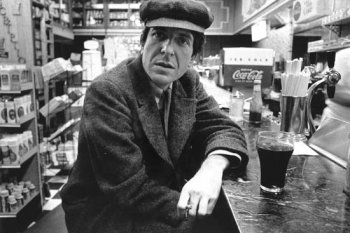
Hard to believe
the former “one-man Joy Division” who now skips on stage, a
“refugee from comfort” in an expensive suit, could have people
dancing in the aisles.
But Cohen has
constantly reinvented and re-explored himself and his music. He, and
it, are in for the long haul.
At Mt Baldy, Cohen
said to Pico Iyer, “To me, the kind of thing I like is that you
write a song and it slips into the world, and they forget who wrote
it.
“And
it moves and changes, and you hear it again three hundred years
later, some women washing their clothes in the stream, and one of
them is humming this tune.”
If
that happens with a Cohen song – and it probably will – it'll
more likely be Hallelujah
than Don't Go Home With
Your Hard-On.


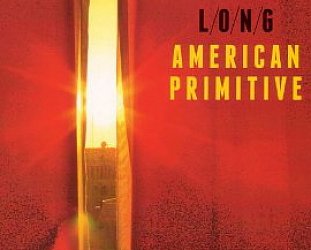
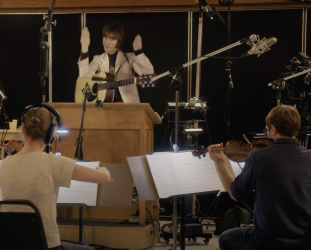
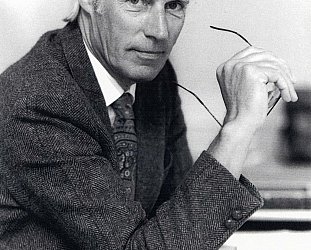
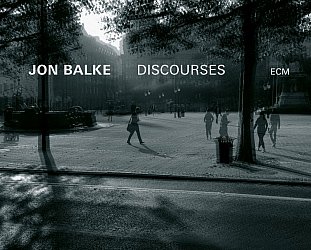
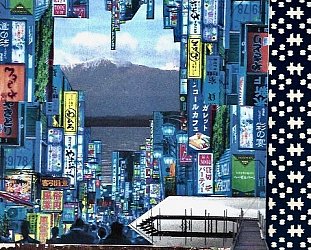
post a comment